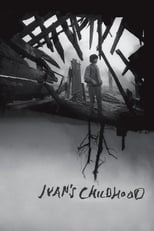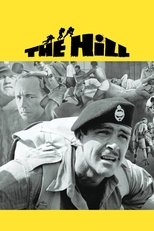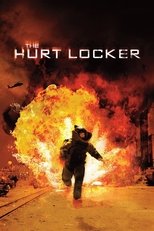WARNING: spoilers below
I was surprised by how much I loved this film. I know it's a Kubrick film, but since I'm not a fan of historical dramas and given that Barry Lyndon is a middle child between four Kubrick films which are more well-known (2001: A Space Odyssey, A Clockwork Orange, The Shining, and Full Metal Jacket), I was wondering if this would be one of his weaker films. But nope, Kubrick blew me away once again.
A major theme of this film is the death of existentialism. Barry's attempts to use his wit and skills to secure a good outcome outside of the system make him an existentialist. These efforts are constantly undermined though. For example, though it initially seems like he kills John Quin in a duel, it's later learned that Quin didn't die and that the duel was a ruse to get rid of him. Also, his efforts of escaping to Dublin are undermined by being robbed. In addition, his plan to join the Seven Years' War to get a pension that will enable him to return home are undermined by his friend dying and, of course, never receiving the pension. Finally, his efforts of deserting the war are undermined by him being drafted into the Prussian Army. Since Barry was unable to change his fate and avoid becoming part of the system, his existentialist ideals fell flat.
The latter parts of the first half are where Barry loses his existentialist ideals and becomes part of the system he attempted to avoid. Saving a Prussian soldier's life in the Seven Years' War is his first turning point. While he initially attempted to create a good outcome for himself by operating outside of the system (again, with no luck), he's now operating from inside the system and doing what those above him would want him to do. Except, he isn't quite ready to be a part of the system. Though he's operating from inside it now, he's yet to master the act of deception. While many people in the film deceived Barry up to this point, he's yet to do the same as Prussian Captain Potzdorf caught on to his last attempt. Eventually though, Barry and Chevalier successfully deceive the Prussians by escaping the country. Marrying Lady Lyndon serves as the final nail in the coffin to his existentialism, causing him to be a member of the system. He's now a deceiver who marries for class and uses violence to settle disputes, just like those around him. He wasn't able to escape this fate.
Now is a good time to mention the cinematography. Most shots in the film are constructed to look like paintings, largely due to the abundance of wide angle shots and how the film was shot only in natural light. While this style is visually outstanding, it also adds to the film's themes. Of course, paintings never move regardless of how long or how many times you view them. They will always tell the same story. I think this aesthetic shows how Barry's story is neither special nor unique. Rather, the character traits we see of him are part of a pattern. Many other people had, have, and will have the same fate as Barry. For instance, though little is known about Barry's father, the first shot shows that he also used violence to settle disputes. In fact, a common camera movement in the film shows a close-up of Barry, only to pull back and reveal more and more of the setting he occupies. These shots show that Barry is less important to these frames than the scenery surrounding him is.
The second half expands upon this generational pattern by detailing how Bullington becomes a faceless member of the system, just as Barry, Barry's father, and everyone else around them did. Much like Barry uses violence to solve conflicts with Bullington in the second half, Bullington uses violence to solve his own conflicts later on. Bullington also upholds the same existentialist ideals Barry had in the early stretches of the film, shown by how Bullington constantly defies Barry with the belief he can save his mother from him or how he later leaves the family estate. Like Barry though, Bullington's efforts are undermined. Defying Barry doesn't save his mother: it only results in him getting beaten. Leaving the family estate doesn't allow for him to operate outside the system: he later returns to the estate. Given this, Barry and Bullington are one and the same as they both end up operating inside the system, despite their efforts to avoid it. Just like a character in a painting, they have no free will and will always live in the same scene.
In conclusion, this is another impressive addition to Kubrick's large body of films. I'm not sure where I'd rank it amongst his other films, but it's definitely a great film. If you haven't seen this film yet, I highly recommend doing so.
I was surprised by how much I loved this film. I know it's a Kubrick film, but since I'm not a fan of historical dramas and given that Barry Lyndon is a middle child between four Kubrick films which are more well-known (2001: A Space Odyssey, A Clockwork Orange, The Shining, and Full Metal Jacket), I was wondering if this would be one of his weaker films. But nope, Kubrick blew me away once again.
A major theme of this film is the death of existentialism. Barry's attempts to use his wit and skills to secure a good outcome outside of the system make him an existentialist. These efforts are constantly undermined though. For example, though it initially seems like he kills John Quin in a duel, it's later learned that Quin didn't die and that the duel was a ruse to get rid of him. Also, his efforts of escaping to Dublin are undermined by being robbed. In addition, his plan to join the Seven Years' War to get a pension that will enable him to return home are undermined by his friend dying and, of course, never receiving the pension. Finally, his efforts of deserting the war are undermined by him being drafted into the Prussian Army. Since Barry was unable to change his fate and avoid becoming part of the system, his existentialist ideals fell flat.
The latter parts of the first half are where Barry loses his existentialist ideals and becomes part of the system he attempted to avoid. Saving a Prussian soldier's life in the Seven Years' War is his first turning point. While he initially attempted to create a good outcome for himself by operating outside of the system (again, with no luck), he's now operating from inside the system and doing what those above him would want him to do. Except, he isn't quite ready to be a part of the system. Though he's operating from inside it now, he's yet to master the act of deception. While many people in the film deceived Barry up to this point, he's yet to do the same as Prussian Captain Potzdorf caught on to his last attempt. Eventually though, Barry and Chevalier successfully deceive the Prussians by escaping the country. Marrying Lady Lyndon serves as the final nail in the coffin to his existentialism, causing him to be a member of the system. He's now a deceiver who marries for class and uses violence to settle disputes, just like those around him. He wasn't able to escape this fate.
Now is a good time to mention the cinematography. Most shots in the film are constructed to look like paintings, largely due to the abundance of wide angle shots and how the film was shot only in natural light. While this style is visually outstanding, it also adds to the film's themes. Of course, paintings never move regardless of how long or how many times you view them. They will always tell the same story. I think this aesthetic shows how Barry's story is neither special nor unique. Rather, the character traits we see of him are part of a pattern. Many other people had, have, and will have the same fate as Barry. For instance, though little is known about Barry's father, the first shot shows that he also used violence to settle disputes. In fact, a common camera movement in the film shows a close-up of Barry, only to pull back and reveal more and more of the setting he occupies. These shots show that Barry is less important to these frames than the scenery surrounding him is.
The second half expands upon this generational pattern by detailing how Bullington becomes a faceless member of the system, just as Barry, Barry's father, and everyone else around them did. Much like Barry uses violence to solve conflicts with Bullington in the second half, Bullington uses violence to solve his own conflicts later on. Bullington also upholds the same existentialist ideals Barry had in the early stretches of the film, shown by how Bullington constantly defies Barry with the belief he can save his mother from him or how he later leaves the family estate. Like Barry though, Bullington's efforts are undermined. Defying Barry doesn't save his mother: it only results in him getting beaten. Leaving the family estate doesn't allow for him to operate outside the system: he later returns to the estate. Given this, Barry and Bullington are one and the same as they both end up operating inside the system, despite their efforts to avoid it. Just like a character in a painting, they have no free will and will always live in the same scene.
In conclusion, this is another impressive addition to Kubrick's large body of films. I'm not sure where I'd rank it amongst his other films, but it's definitely a great film. If you haven't seen this film yet, I highly recommend doing so.

 Check out my podcast:
Check out my podcast: 


